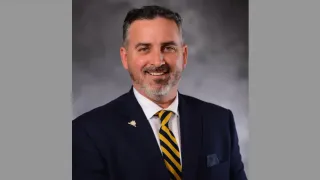
3 hours ago
New Trussell Trust Report Reveals Queer People Face Disproportionate Hunger Crisis in the UK
READ TIME: 3 MIN.
A comprehensive new report by the Trussell Trust, one of the UK’s most prominent anti-poverty charities, has revealed that LGBTQ+ people are facing an acute hunger crisis, with food insecurity rates significantly higher than those of their heterosexual and cisgender counterparts. According to the "Hunger in the UK 2025" report, 34% of LGBTQ+ people experienced food insecurity in 2024—a figure more than double the 15% reported among non-LGBTQ+ people .
The Trussell Trust’s latest data, compiled in partnership with Ipsos and based on direct input from those accessing food banks, paints a stark picture of entrenched hardship in the UK. In 2024, at least 14.1 million people—equivalent to about one in six households—experienced food insecurity, a dramatic increase from 11.6 million in 2022. Within this, queer communities were disproportionately affected: over one-third of LGBTQ+ respondents reported lacking reliable access to enough affordable and nutritious food .
The report found disparities within the LGBTQ+ community itself. Queer women were especially at risk, with 34% experiencing food insecurity compared to 17% of LGBTQ+ men . The data also showed that 8% of all people referred to food banks in 2024 identified as LGBTQ+, a figure that exceeds their estimated proportion in the national population .
Experts point to a range of intersecting barriers that compound the risk of food insecurity among LGBTQ+ people. The Trussell Trust notes that systemic issues—such as discrimination in employment, lack of adequate mental health support, and persistent social stigma—make it harder for queer individuals to access stable income, housing, and public services .
Mental health emerges as a particularly significant factor: 35% of people with mental health conditions reported experiencing food insecurity, with the LGBTQ+ community—already known to face higher rates of mental health challenges due to minority stress—disproportionately affected .
Disabled LGBTQ+ people and those from racialised communities face even higher rates of hunger, amplifying the call for intersectional policy responses. The report also finds that single parents, particularly those from marginalised backgrounds, are among the groups most severely impacted by the current wave of food insecurity .
The Trussell Trust’s analysis, bolstered by qualitative input from community members, indicates several drivers:
- Economic Disadvantage: LGBTQ+ people are more likely to face employment discrimination, resulting in lower wages and less job security .
- Social Security Gaps: A significant proportion of those referred to food banks are already receiving Universal Credit or other benefits, yet these payments are widely reported as inadequate to meet basic living costs. For many queer individuals, especially those estranged from unsupportive families, the lack of a safety net can lead to crisis .
- Barriers to Access: Stigma and discrimination can deter LGBTQ+ people from seeking help, and not all food banks or support services are inclusive or welcoming to queer people .
- Mental Health: Elevated rates of mental health challenges in the LGBTQ+ community, often exacerbated by societal prejudice, are closely linked to economic hardship and hunger .
The Trussell Trust’s research includes testimony from LGBTQ+ people who have accessed food banks. Many describe the experience as a last resort, often after exhausting all other options. For some, the process of seeking help is itself fraught with fear of discrimination or being “outed” in unsupportive environments .
One participant, a transgender woman cited in the report, described being forced to choose between buying food and accessing gender-affirming care, saying, “The support systems aren’t built with us in mind. When I finally went to a food bank, I was scared I’d be judged, but I was desperate” .
The Trussell Trust is urging policymakers to treat food insecurity as a structural issue, not a series of isolated personal crises. Their recommendations include:
- Raising benefit payments to reflect real living costs, with a particular focus on the needs of marginalised groups .
- Improving access to inclusive support services for queer people, including mental health care and employment assistance .
- Ensuring all food banks and poverty alleviation programs are explicitly welcoming to queer people, through staff training and visible inclusion policies .






